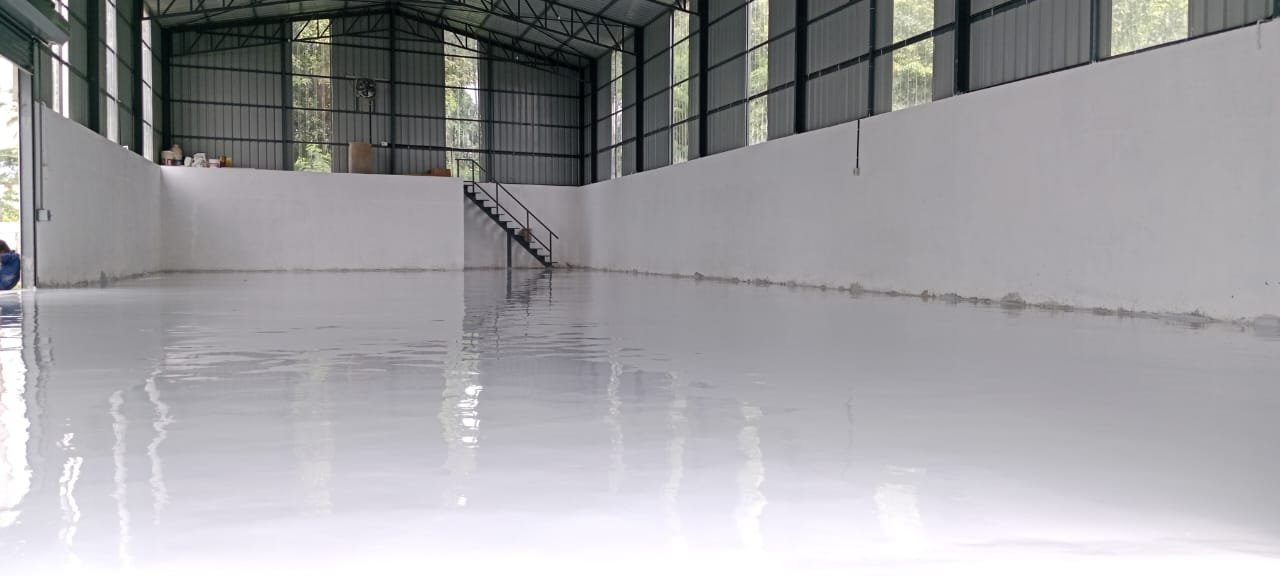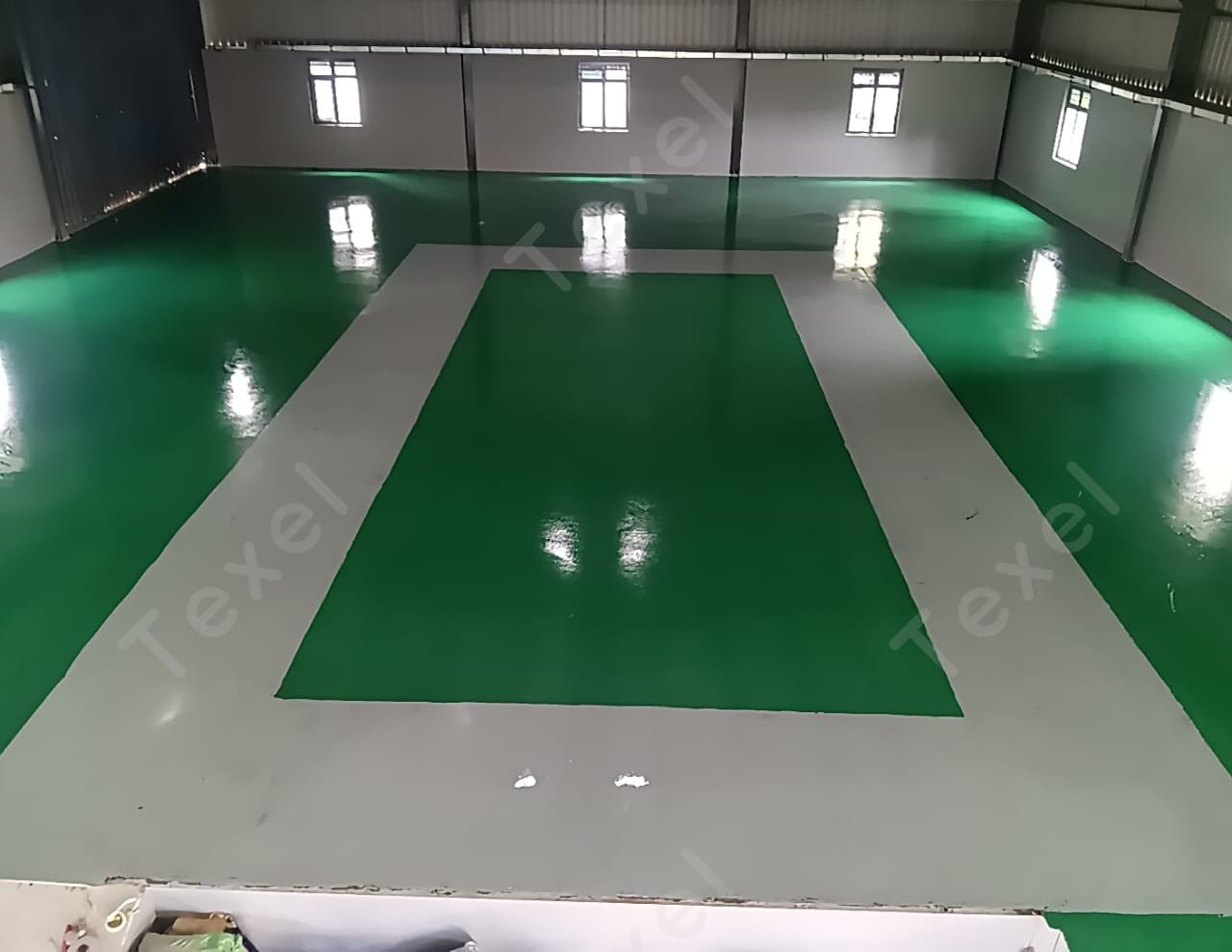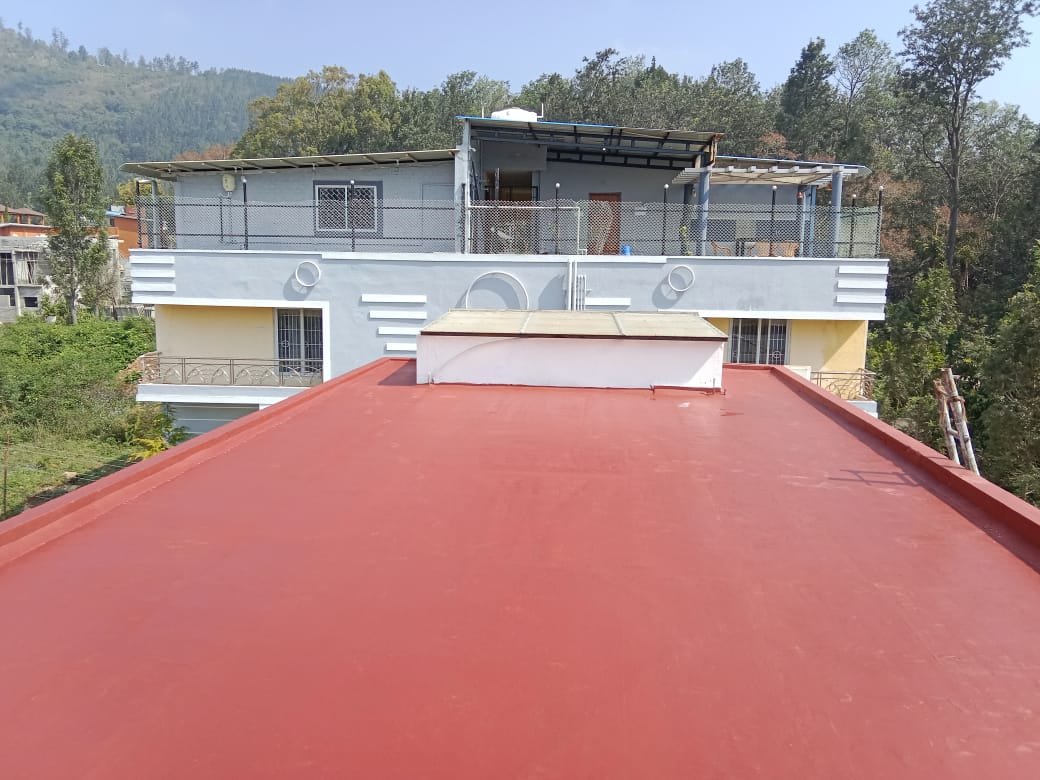WHERE EPOXY FLOORING IS USED?
WHERE EPOXY FLOORING IS
USED?
TABLE OF CONTENTS
![]()
INTRODUCTION
![]()
PLACES WHERE
EPOXY FLOORING IS USED
![]()
CONCLUSION
INTRODUCTION
Epoxy flooring is a type of flooring made from epoxy resin, a two-part
system consisting of resin and a hardener. When mixed together, they create a
rigid plastic material that adheres strongly to the floor. Epoxy flooring is
known for its durability, strength, and resistance to chemicals, stains, and
wear and tear. It is applied as a coating over concrete floors to provide a
smooth, glossy, and seamless finish.
PLACES WHERE EPOXY FLOORING
IS USED
Epoxy flooring is utilized in various settings due to its durability,
versatility, and advantageous properties. Some common places where epoxy flooring
is extensively used include:
![]() Commercial
Buildings: Epoxy flooring is commonly found in retail stores, shopping malls,
restaurants, hotels, and other commercial spaces due to its durability,
resistance to heavy foot traffic, and customizable design options.
Commercial
Buildings: Epoxy flooring is commonly found in retail stores, shopping malls,
restaurants, hotels, and other commercial spaces due to its durability,
resistance to heavy foot traffic, and customizable design options.
![]() Industrial
Facilities: Factories, warehouses, manufacturing plants, and distribution centers
often utilize epoxy flooring because of its resistance to chemicals, durability
against heavy machinery, and ease of maintenance.
Industrial
Facilities: Factories, warehouses, manufacturing plants, and distribution centers
often utilize epoxy flooring because of its resistance to chemicals, durability
against heavy machinery, and ease of maintenance.
![]() Garages and
Automotive Workshops: Epoxy coatings are popular choices for garage floors,
both in residential homes and commercial automotive repair shops, due to their
resistance to oil stains, chemicals, and abrasions.
Garages and
Automotive Workshops: Epoxy coatings are popular choices for garage floors,
both in residential homes and commercial automotive repair shops, due to their
resistance to oil stains, chemicals, and abrasions.
![]() Healthcare
Environments: Hospitals, clinics, laboratories, and pharmaceutical facilities utilize
epoxy flooring for its seamless, hygienic surface that is easy to clean and
maintain, meeting strict cleanliness standards.
Healthcare
Environments: Hospitals, clinics, laboratories, and pharmaceutical facilities utilize
epoxy flooring for its seamless, hygienic surface that is easy to clean and
maintain, meeting strict cleanliness standards.
![]() Sports and
Fitness Areas: Gyms, sports arenas, fitness centers, and stadiums benefit from epoxy
flooring due to its durability, impact resistance, and the ability to customize
with specific court markings or designs.
Sports and
Fitness Areas: Gyms, sports arenas, fitness centers, and stadiums benefit from epoxy
flooring due to its durability, impact resistance, and the ability to customize
with specific court markings or designs.
![]() Food and
Beverage Industry: Epoxy flooring is prevalent in food processing
plants, commercial kitchens, breweries, and restaurants because of its
resistance to chemicals, ease of cleaning, and compliance with strict hygiene
requirements.
Food and
Beverage Industry: Epoxy flooring is prevalent in food processing
plants, commercial kitchens, breweries, and restaurants because of its
resistance to chemicals, ease of cleaning, and compliance with strict hygiene
requirements.
![]() Aircraft Hangars
and Transportation Facilities: Epoxy flooring’s durability, chemical resistance, and
capacity to handle heavy equipment make it suitable for aircraft hangars, bus
terminals, train stations, and other transportation-related spaces.
Aircraft Hangars
and Transportation Facilities: Epoxy flooring’s durability, chemical resistance, and
capacity to handle heavy equipment make it suitable for aircraft hangars, bus
terminals, train stations, and other transportation-related spaces.
![]() Residential
Spaces: Homeowners increasingly use epoxy flooring in areas like basements,
kitchens, living rooms, and even outdoor spaces like patios and pool decks due
to its durability, aesthetic appeal, and easy maintenance.
Residential
Spaces: Homeowners increasingly use epoxy flooring in areas like basements,
kitchens, living rooms, and even outdoor spaces like patios and pool decks due
to its durability, aesthetic appeal, and easy maintenance.
![]() Educational
Institutions: Schools, colleges, and universities may utilize epoxy flooring in
laboratories, hallways, cafeterias, and other areas where durability,
cleanliness, and customization are essential.
Educational
Institutions: Schools, colleges, and universities may utilize epoxy flooring in
laboratories, hallways, cafeterias, and other areas where durability,
cleanliness, and customization are essential.
![]() Decorative and
Artistic Installations: Epoxy flooring offers diverse design possibilities,
making it suitable for art studios, galleries, exhibition spaces, and other areas
where customized colors, patterns, and designs are desired.
Decorative and
Artistic Installations: Epoxy flooring offers diverse design possibilities,
making it suitable for art studios, galleries, exhibition spaces, and other areas
where customized colors, patterns, and designs are desired.
CONCLUSION
Epoxy flooring finds widespread use across diverse settings due to its
remarkable properties and versatile applications. The
adaptability, durability, customization options, and resistance to various
elements make epoxy flooring a popular choice across an array of residential,
commercial, industrial, and specialized settings, meeting specific needs while
offering a durable, aesthetically pleasing surface.
Related Posts
Leave a Reply Cancel reply
You must be logged in to post a comment.




